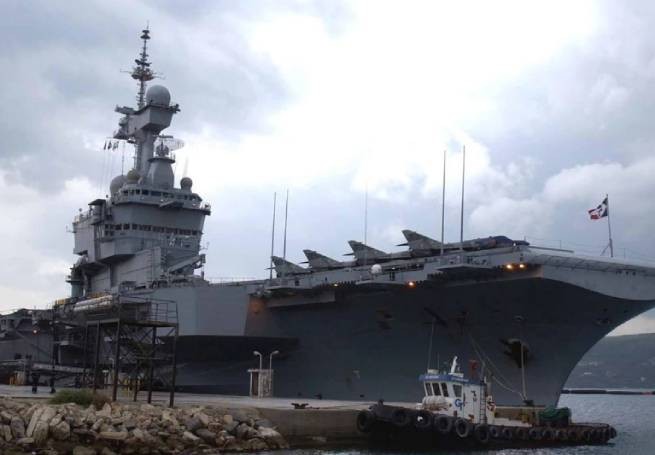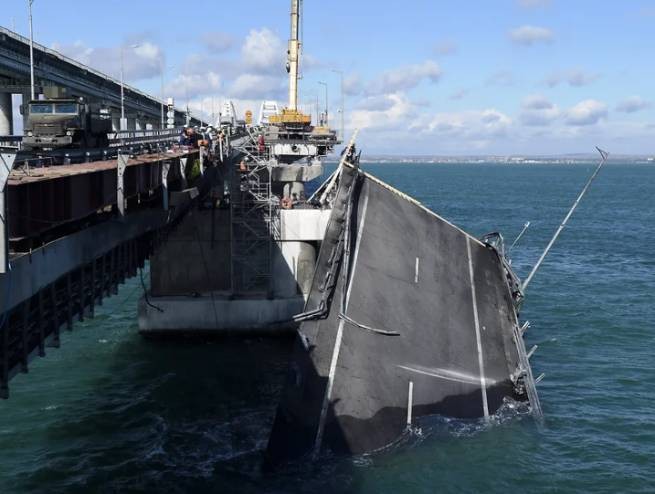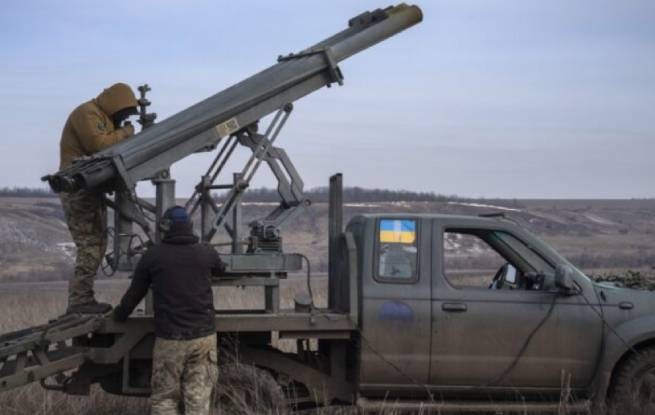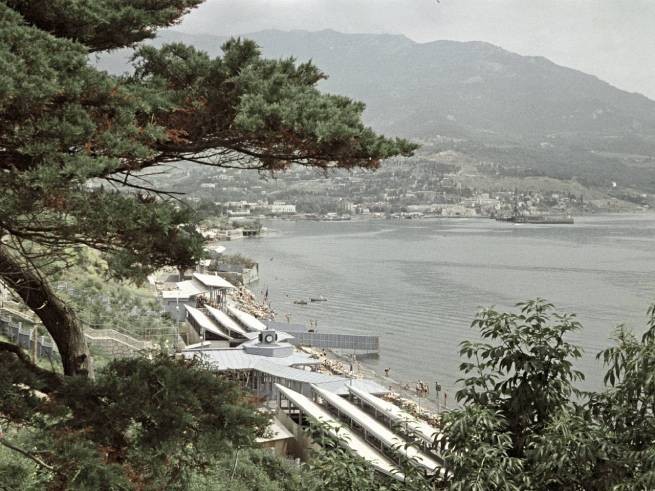Russia is reviewing the status of Crimea, with the aim of recognizing the entry of the Crimean region into the Ukrainian SSR as illegal.
According to the Russian Federation, writes the publication Crimea.Realii, this will prove that the peninsula was part of Ukraine “against the will of its inhabitants” and will allow “to give this a political assessment.” Subject to a positive verdict in this case, there will be no reason to refer to the Ukrainian status of the peninsula when discussing the Crimean issue. Moscow also associates it with hopes for successful negotiations for the Russian Federation as part of its full-scale invasion of Ukraine. Is it so?
How found out publication, a working group of the Moscow-controlled Crimean parliament is preparing a lawsuit in the Constitutional Court of the Russian Federation regarding the illegitimacy of the decision of the then leadership of the USSR to transfer Crimea to Ukraine in 1954. As part of the trial, they want to prove the illegality of this decision and its “legal defect.”
The court’s decision is apparently being prepared for the 70th anniversary of the act of transferring the peninsula to the Ukrainian SSR. The date will also coincide with the 10th anniversary of the annexation of Crimea (unless, of course, the region is deoccupied by the Ukrainian Armed Forces by that time).
The issue brought up for discussion in court touches on historical and political issues. The Russian Federation distorts many of them, trying to find arguments to justify the annexation of the Crimean Peninsula. With the help of this trial, the Russian authorities are trying to get a new argument to counter the position of international legislation that defines Crimea as part of Ukraine.
Let us recall that in 2014, the thesis that Nikita Khrushchev “gave Crimea to Ukraine while drunk” began to be actively heard in the Russian information field. Both historians and journalists have repeatedly refuted this myth. For example, the Crimean historian Maxim Mayorov has repeatedly explained to the publication that it makes no sense to challenge the transfer of the peninsula to Ukraine in 1954, given that internal changes in borders in the former USSR were “commonplace.” He explains:
“There have never been referendums in the Soviet Union as such, to resolve territorial issues or any kind in general. The first referendum that took place in the USSR was a referendum in March 1991. Therefore, to say that the Crimeans were not asked is speculation. Since similar similar decisions in other republics have always taken this exact route, by decision of the authorities, without relying on any referendums or resolutions of people’s assemblies.”
Russian authorities have repeatedly tried to challenge the issue of Crimea’s ownership. In 2014, this issue was planned to be raised by decision of the State Duma of the Russian Federation. Speaker of the Federation Council Valentina Matvienko announced a bill to invalidate the decision to transfer Crimea to Ukraine in 1954 in order to “bring the situation in line with international law and restore historical justice.” However, such a document never appeared. Then there was an attempt to resolve this issue from the legal side. But she also failed.
In 2015, the Russian Prosecutor General’s Office, in response to a request from deputy Sergei Mironov, announced that it had checked the legality of this decision. The department came to the conclusion that the decisions of the presidiums of the Supreme Councils of the RSFSR and the USSR adopted in 1954 on the transfer of the Crimean region from the RSFSR to the Ukrainian SSR “did not comply with the constitutions of the RSFSR and the USSR.” However, it is “not possible” to initiate a lawsuit to invalidate the decree, given that challenging the law of the former USSR and checking its constitutionality does not fall within the competence of Russian courts of general jurisdiction, prosecutors admitted.
After the start of a full-scale invasion of Ukraine, the issue of revising the decision to transfer Crimea to Ukraine again appeared on the agenda of the Crimean authorities. The transfer of the peninsula to the Ukrainian SSR “gave rise to a chain of lawlessness and still remains the basis for unlawful judgments regarding Crimea,” said Vladimir Konstantinov, speaker of the Russian parliament of Crimea:
“We found ourselves in Ukraine illegally. And this thesis, obvious to us, must be proven. It’s not enough to talk about it. There must be an indisputable legal verdict on this matter. It is necessary to establish, according to the laws in force then (during the Soviet years): Crimea was transferred to Ukraine legally or not. If it was transferred legally, then the thesis that we ended up as part of Ukraine in violation of union legislation will have to be withdrawn.”
With the help of the decision of the Russian Constitutional Court on the status of Crimea, Konstantinov hopes to “strengthen the position” of Russia in negotiations as part of its full-scale invasion of Ukraine:
“As we see it, the issue of a legal verdict will strengthen our position in negotiations with the West, which will take place sooner or later anyway. And for the international community, the issue of canceling the illegal decision will have quite a tangible resonance.”
International law expert, Doctor of Law, Professor Boris Babin calls the upcoming process fake:
“Crimean collaborators do not want a decision from the “Crimean arbitration”, but from the real Constitutional Court of Russia. Therefore, in the 1954 case, everything is more complicated than, for example, in the case of damage from the water blockade of Crimea, which, obviously, will not go beyond the fake “Crimean jurisdiction.” Here, smarter Moscow heads understand the danger of creating a precedent. Actually, legal issues concern them the least. Because the reassigned 80-year-old Zorkin (Valery Zorkin – head of the Constitutional Court of Russia) can prescribe something about Mars. The question is “precedent”. Because Russia itself received different territories from its neighbors in the middle of the last century and this, of course, can also be “overestimated” through the same procedure.”
Therefore, the expert believes, the question of the actual consideration of the claim on the status of Crimea by the Constitutional Court of Russia remains open for now:
“Whether the “issue of 1954” will be raised is still unclear. This process is aimed exclusively at propaganda and self-PR of Vladimir Konstantinov. This process clearly cannot be transferred to the real plane, including hypothetical counterclaims. If the Kremlin really wanted to fabricate some “cases,” it would clearly not be entrusted to Konstantinov and his “outstanding State Council lawyers.”
Executive Director of the Institute of World Politics Evgeniy Magda believes that the Russian court’s review of the status of Crimea “will not give any consequences or grounds” for changing the position of the international community on this issue:
“The basis of international law is the irreversibility of laws. If someone in Russia tries to question the legitimacy of the decision to include Crimea into Ukraine, then they should also question the legality of the transfer of Ukrainian ethnic lands to Russia – Taganrog, Belgorod region (now Russian territory) and so on. All these unilateral decisions do not have any consequences for the international community.”
However, the political scientist does not exclude that the Constitutional Court of Russia may satisfy the plaintiff’s demands within the framework of this process, based on political expediency and propaganda purposes. The Russian authorities of Crimea have announced that they are preparing a lawsuit regarding the status of the peninsula. It is still unknown when it will be sent to the Constitutional Court of Russia.
Let us recall that in February 2014, armed people in unmarked uniforms seized the building of the Verkhovna Rada of the Autonomous Republic of Crimea, the Council of Ministers of the Autonomous Republic of Crimea, as well as the Simferopol airport, the Kerch ferry crossing, and other strategic objects and blocked the actions of Ukrainian troops. Russian authorities initially refused to acknowledge that these armed men were members of the Russian army. Russian President Vladimir Putin later admitted that it was the Russian military.
On March 16, 2014, a “referendum” on the status of the peninsula, unrecognized by most countries of the world, was held on the territory of Crimea and Sevastopol, as a result of which Russia included Crimea into its composition. Neither Ukraine, nor the European Union, nor the United States recognized the results of the “referendum”. Russian President Vladimir Putin announced on March 18 the “annexation” of Crimea to Russia.
International organizations recognized the occupation and annexation of Crimea as illegal and condemned Russia’s actions. Western countries have imposed economic sanctions. Russia denies the annexation of the peninsula and calls it “restoration of historical justice.” The Verkhovna Rada of Ukraine officially announced the start date of the temporary occupation of Crimea and Sevastopol by Russia as February 20, 2014.







More Stories
What influenced Greece’s decision to help Kyiv with weapons?
The Minister of Health called the protesters "insignificant people, kafirs"
Gold Switzerland: “We are in the last 5 minutes of our financial system – the collapse of everything is approaching”